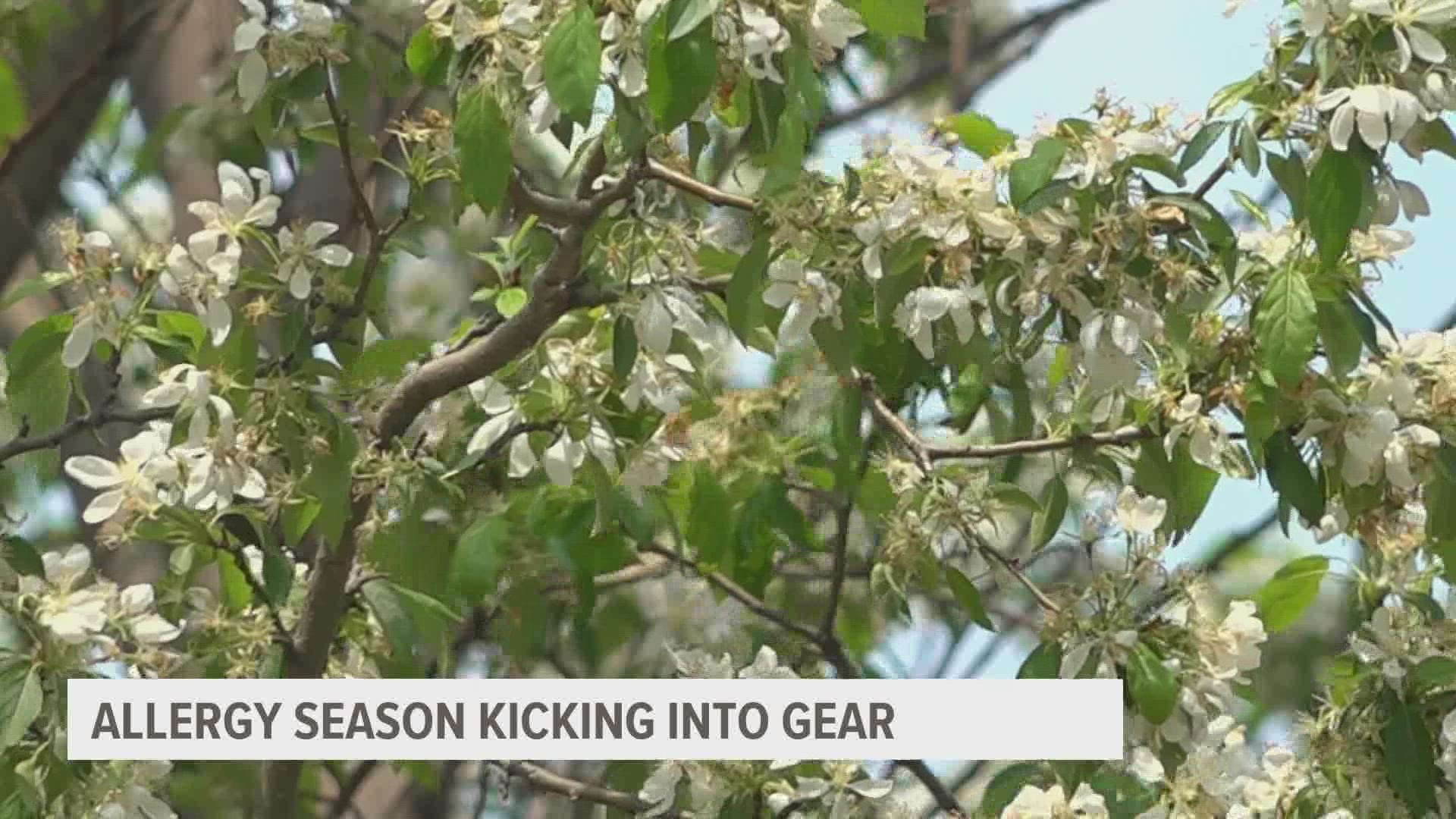DES MOINES, Iowa — Spring has passed, and summer has arrived. Well, temporarily.
The run of 90s will come to an end on Friday, with some spring weather returning this weekend.
But it's about time, isn't it? April ran around four degrees below average, and the first few days of May weren't a whole lot better. Allergens are now kicking up though.
Trees are first, with ash, birch, and maple leading the pack. Grasses and ragweeds will be up next in the next couple weeks.
Dr. Laura Bowshier with MercyOne Waukee Family Medicine says she has really seen a spike recently.
"We're seeing people coming in frequently feeling like they were doing fine, and then all of a sudden they're waking up in the morning with symptoms and noticing it throughout their day," Bowshier said.
Nasal saline sinus rinses and showering as soon as you get home are two of the most obvious solutions to fighting the sniffles and watery eyes.
There is a much more edible solution though: honey.
"When we consume honey, we are consuming pollen from the local flowers," Mike Peverill with Peverill's Apiary said.
The key word there is local. It is not necessarily about the specific type of honey, just that it's using pollen and bees from your neck of the woods.
"Think of it like a vaccination. We're ingesting that pollen into our system, and the body gets used to that," Peverill added.
He added it's important to not only eat local honey but that it's also raw and unfiltered.

